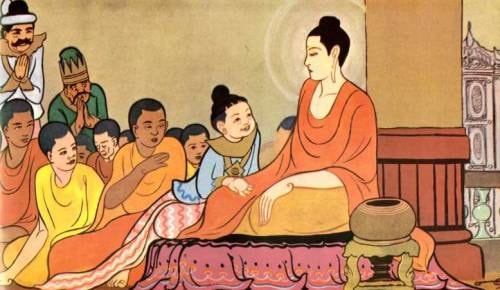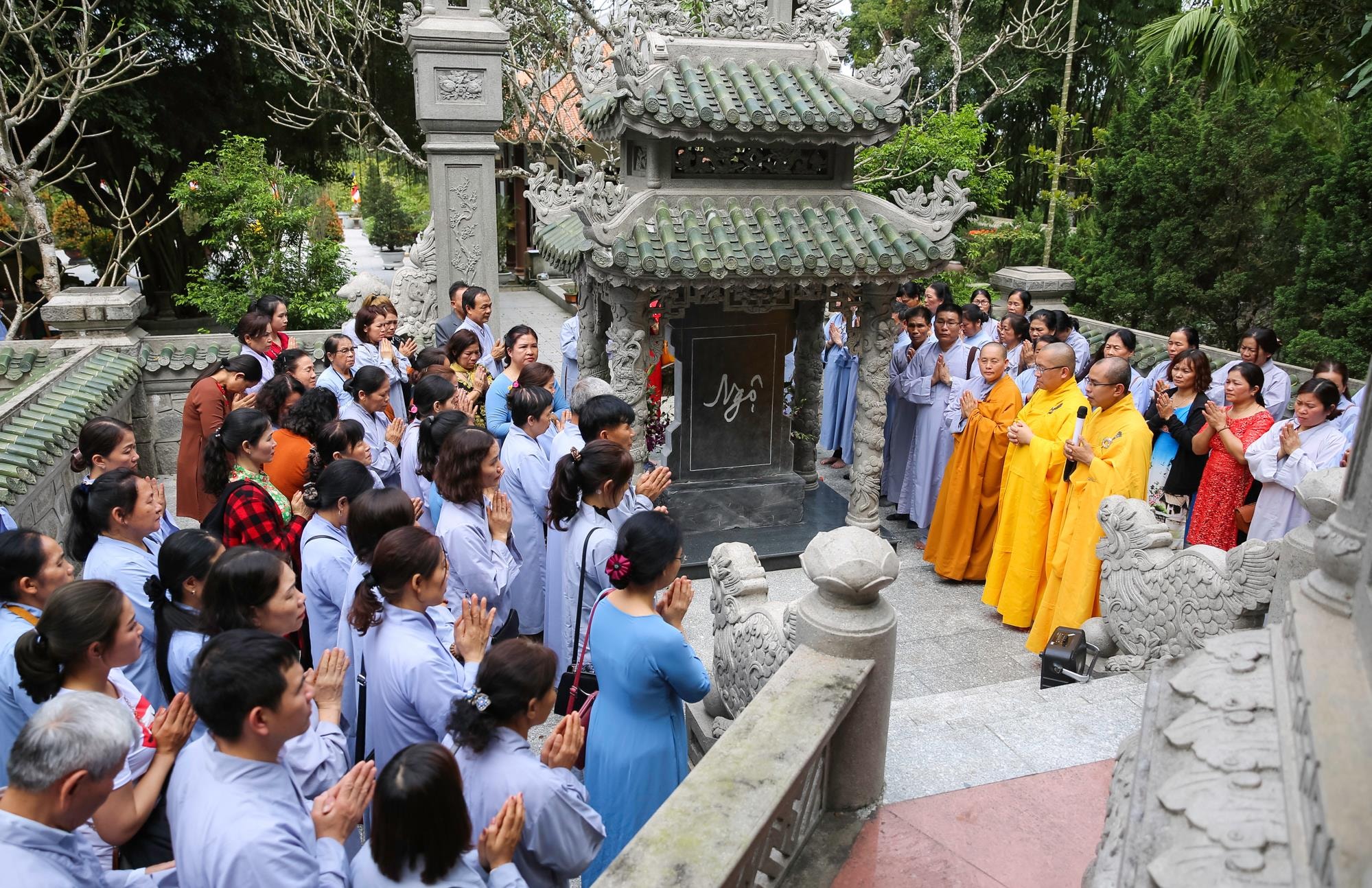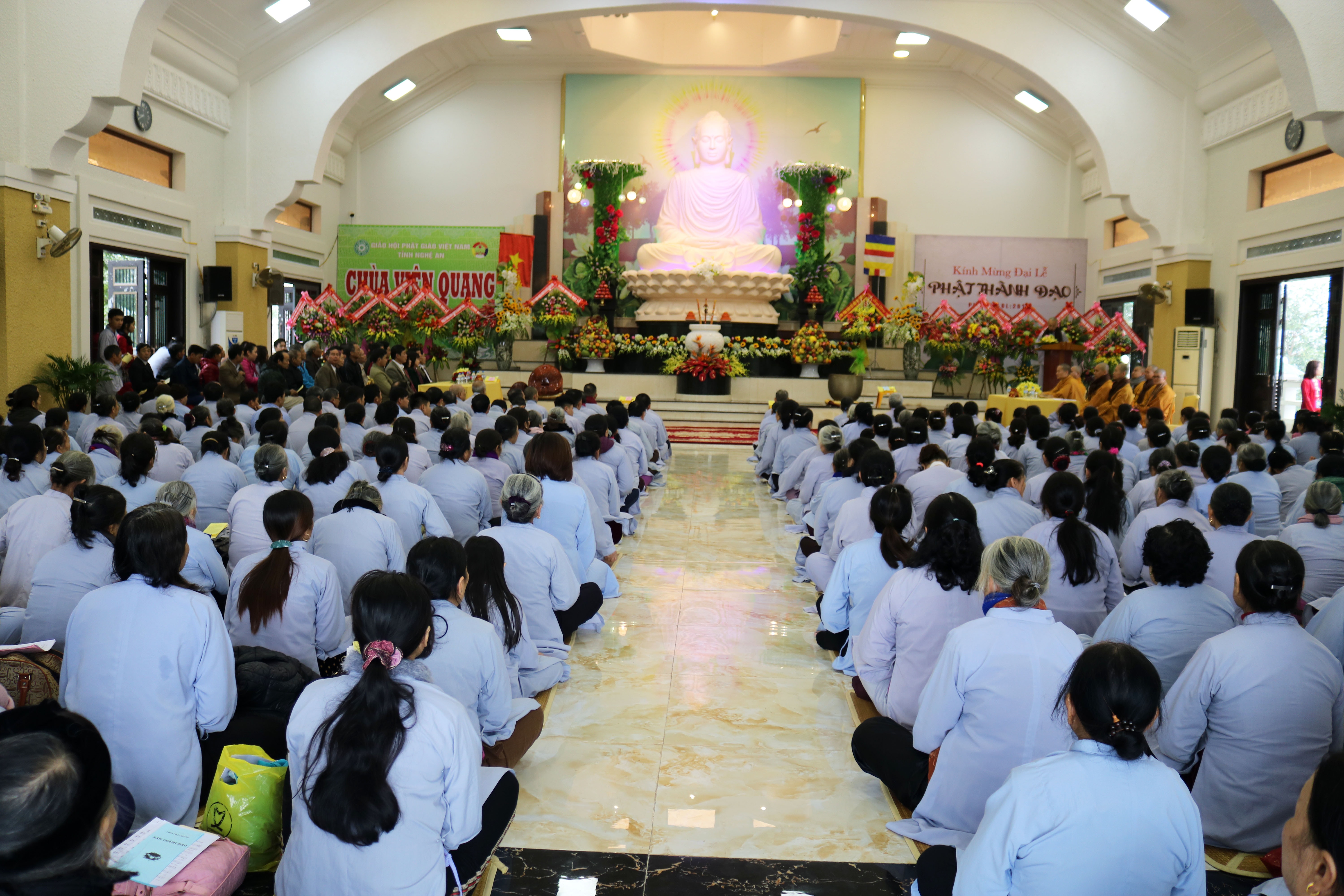Understanding Compassion in Buddhist Teachings
(Baonghean) - Many people ask, now that so many people go to pagodas, does that mean there will be more people practicing Buddhism, learning from Buddha, and living more honestly?...
 |
| Buddhist philosophy of compassion and loving speech - Solutions to school violence. |
Why does society still have to face so many sad stories happening every day from within the family to outside society; mildly because of words, looks, jealous attitudes; seriously because of fighting over property, fraud, debt, robbery, murder?... There are heartbreaking cases such as blind jealousy killing each other, rebellious children killing their parents, husbands brutally killing their wives and children or vice versa; then brothers and relatives killing each other sometimes just because of petty conflicts in life...
Are those who commit crimes selfish, self-centered, stubborn and do not understand the value of life? Not to mention the profound meaning of the spirit of Compassion - Joy - Equanimity and the retribution of cause and effect of Buddhism, but the morality of tolerance, living honestly, loving others as you love yourself in normal life also does not allow people to do evil, live against conscience. If everyone is imbued with the ideology and spirit of Compassion - Joy - Equanimity of Buddhism, surely they will reduce their aggressive attitude, avoid sinful deeds, and together build a compassionate and harmonious life.
According to Buddhist teachings, the practice of Loving-Kindness-Compassion-Joy-Equanimity is the priceless treasure that Buddha left to humanity. Buddhism takes compassion as its motto and aspiration.
“Tu” is to give joy. “Bi” is to feel pity for the suffering of living beings. “Great compassion” is to see others drown as if you were drowning yourself, to see others starve as if you were starving yourself, to see others suffer as if you were in trouble yourself.
That is why the Buddha advised Buddhists to help sentient beings escape from suffering, to help those who are suffering, to bring them joy in life. Being indifferent to human suffering is to lose the saving spirit of Buddhism. It can be said that “Compassion” is the cause and “Love” is the result of “Compassion”.
“Joy” is the joy of those who practice compassion. “Equanimity” is to give happiness to sentient beings, to eliminate their suffering and to help them in difficult situations. By doing so, everyone will feel light, peaceful and happy. To do that, Buddhists must cultivate the Four Immeasurable Minds. Only with the Four Immeasurable Minds can they educate sentient beings, help them escape suffering and find happiness. The Four Immeasurable Minds are Love - Compassion - Joy - Equanimity. Immeasurable has no limit, doing good deeds and helping people is never enough.
 |
| Buddhists visit Tuong Van Pagoda in Hue. Photo: Duc Anh |
The important thing is to use compassion to influence others. We must know that “Repaying resentment with hatred will only add to the resentment”; “Repaying resentment with virtue will only dissolve the resentment” and find a way to help them change their minds and repent. We must be patient to turn swords and wounds into silk; the rain will stop, the sky will clear, the waves will calm, and the wind will calm. On the contrary, if we do not know how to be patient, if we do not calmly find a way to resolve big problems into small ones, and small problems into nothing, then everyone will be hurt, and even their lives will be in danger.
“Human nature is inherently good”, humans are inherently endowed with Buddha nature. Whoever abandons Buddha nature will surely become a bad person. Realizing Buddha nature within oneself is the way for each person to keep their heart pure, to let go of trivial desires, and not to be jealous or hateful towards others. When there is compassion, everyone will live together in peace and happiness. Anyone can attain ultimate goodness if they know how to practice properly. Precious wood or ordinary firewood, as long as it is dry and clean, will burn equally brightly.
 |
| A child is happy to receive offerings from monks during the national peace and prosperity ceremony at Duc Hau Pagoda. Photo: Duc Anh |
Buddhism has adopted Loving-Kindness, Compassion, Joy, and Equanimity as its principles and always preaches the eradication of hatred, the spirit of harmony, humility, and advises people to focus on doing good deeds and helping others: "As long as there are suffering beings, there can be no joy for those with compassionate hearts."
 |
| Buddhists attending the Buddha's Enlightenment Ceremony, remembering the Buddha's enlightenment day with all their respect. Photo courtesy |
Not only Buddhist teachings, but Lao-Trang also always advises people to live a good life, using peace to neutralize bad and evil. In his life, Lao-Tzu always promoted the word "Kindness", which means loving everyone, being generous and forgiving. According to Lao-Tzu, "repaying resentment with resentment is the common sense of ordinary people; repaying resentment with law is a higher level; repaying resentment with virtue is the best policy, it is extraordinary because it makes resentment disappear". And Trang-Tzu teaches: If someone is good to me, I will also be good to him. If someone is evil to me, I will also be good to him. If I am not evil, how can someone be evil to me? (If I am good, I will also be good. If I am evil, I will also be good. If I am evil, I will also be good. If I am evil, I will not be evil, how can someone be evil to me).
 |
| Buddhists held a mindfulness ceremony to commemorate Buddha's enlightenment at Duc Hau Pagoda. Photo: Duc Anh |
